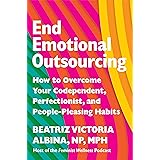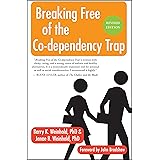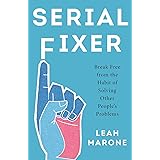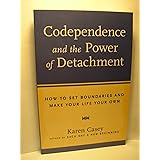The conversation between Joe Rogan and Joey Diaz, as heard in the accompanying video, delves into the fascinating yet dangerous world of gambling. They touch upon everything from the sheer volume of money wagered annually to the deeply personal and devastating impact of gambling addiction. This discussion highlights a crucial truth: while gambling can be a form of entertainment, for many, it becomes a destructive force, eroding finances, relationships, and mental well-being.
The core of their discussion revolves around the problematic nature of gambling when it escalates beyond recreation into a compulsive disorder. This article expands on their insights, exploring the pervasive influence of gambling, its comparison to substance abuse, and the societal implications of its widespread legalization.
The Pervasive Nature of Gambling in Modern Society
1. Our society has witnessed an explosion in gambling opportunities, particularly with the rise of online platforms and widespread sports betting legalization. Joe Rogan and Joey Diaz rightly point out the immense sums of money changing hands, with billions wagered on major events like the Super Bowl annually. For instance, the transcript highlights a staggering $4.8 billion bet on the Super Bowl, with a significant majority occurring online rather than in traditional brick-and-mortar casinos in places like Nevada.
This massive influx of capital into the gambling industry underscores its vast reach and economic power. The ease of access, combined with aggressive marketing, makes betting on anything from sports to casino games incredibly convenient. While this generates substantial tax revenue for states, it also creates an environment ripe for the development of problem gambling, often subtly, through the convenience of a smartphone or computer.
Understanding Gambling Addiction: More Than Just a Bad Habit
2. A central theme in the conversation is the severe nature of gambling addiction, which Joey Diaz emphatically compares to drug and alcohol abuse. He asserts, “There’s no difference in the drug addict and the gambling addict,” a statement echoed by Joe Rogan. This comparison is rooted in the neurological and behavioral similarities between these addictions.
Compulsive gambling is recognized as a legitimate mental health disorder, characterized by an uncontrollable urge to gamble despite negative consequences. The “high” experienced from winning, or even the anticipation of it, triggers dopamine releases in the brain, similar to the effects of addictive substances. As individuals chase this feeling, or desperately try to recover losses, they can spiral into a cycle that consumes their lives, much like a severe substance use disorder.
The Disproportionate Impact on Specific Demographics
3. Interestingly, Joey Diaz makes a striking claim that a “biggest percentage of the degenerate gamblers are usually women.” While this assertion from the transcript is not fully quantified with specific data within the video, it reflects a growing body of research that indicates women can be particularly vulnerable to certain forms of gambling addiction, especially those involving slot machines and instant-win games. These games are often designed with sophisticated psychological triggers that can “fuck with your mind,” as Diaz describes, creating a relentless cycle of play.
The Connecticut exposé mentioned in the video, detailing women losing “mortgages, houses” at Mohegan Sun, tragically illustrates this point. Women may also experience different social pressures and stigma associated with gambling problems, leading to delayed recognition and treatment. The ease of online access further blurs the lines, allowing individuals to gamble discreetly from home, potentially exacerbating the problem before it becomes visible to others.
The Dark Side of the Pursuit: Financial Ruin and Personal Loss
4. The most devastating consequence of unaddressed gambling addiction is the financial and personal ruin it inflicts. The transcript features stark examples, from Joey Diaz recounting a friend losing $80,000 at a young age to the infamous case of Charles Barkley losing nearly $30 million. These aren’t just abstract numbers; they represent lives upended, homes lost, and families fractured.
For those without the means of a celebrity, losing just a few hundred or thousand dollars can have catastrophic effects. Individuals caught in the grip of gambling addiction often resort to desperate measures to fuel their habit or chase perceived “lucky days,” taking out loans, maxing out credit cards, or even engaging in illegal activities. The psychological trap is particularly insidious, as the addict firmly believes that the next bet will be the one that turns everything around, leading to an ever-deepening hole.
The “System” Designed to Keep You Playing
5. Joey Diaz perceptively states that “the system is designed to bury the degenerate gambler.” This refers to the inherent mathematical advantage of all casino games and sports books, known as the “house edge.” While individual wins are possible, over time and with consistent play, the odds are overwhelmingly in favor of the establishment.
Casinos and betting platforms utilize advanced analytics and psychological strategies to encourage continued play. Features like loyalty programs, free perks, ambient music, and strategically placed ATMs are all part of an environment crafted to keep patrons engaged. For those vulnerable to addiction, these elements can combine to create a powerful, almost inescapable, cycle where the “lucky day” they dream of never truly arrives, despite temporary wins that only reinforce false hope.
The Debate on Legalization and Regulation
6. The discussion naturally veers into the complexities of gambling legalization. Joe Rogan questions the existing regulations, asking why it’s a problem for adults to gamble freely, implying a desire for less government oversight. However, the conversation also acknowledges the government’s interest in regulating it, largely for tax revenue (preventing untaxed cash exchanges) and to manage the societal problems associated with widespread gambling.
The case of Chris Christie and the Supreme Court on sports betting, with 17 states joining New Jersey in wanting expanded betting options, exemplifies the ongoing push for broader legalization. While proponents argue that legalization can bring a black market industry into the light, generate tax dollars, and offer consumer protections, critics highlight the potential for increased rates of problem gambling and related social costs. The debate remains a balancing act between economic benefits and public health concerns.
Beyond the Dice: Skill-Based Gambling and Professional Play
7. The podcast also offers a nuanced look at skill-based gambling, specifically through Joe Rogan’s passion for pool. He describes playing for money in pool halls, but differentiating it from destructive addiction. For skilled players, betting on a game of pool, like the high-stakes matches at West End Billiards he describes, can be about competition, strategy, and even a “friendly sparring” that improves one’s game. This type of gambling, particularly when backed by significant skill and managed within one’s means, stands in contrast to the lottery ticket habit or slot machine compulsion discussed earlier.
The distinction lies in control, intent, and outcome. Professional players like Max Eberle, whom Rogan greatly respects, demonstrate an artistic and technical mastery that allows them to make a living from their skill, rather than being solely at the mercy of chance. However, even in these environments, the transcript notes the presence of “hustlers” and the intense, often amphetamine-fueled, marathons that underscore the addictive potential, even when skill is a factor.
Unpacking the Urge: Your Questions on Gambling Addiction, Inspired by Rogan & Diaz
What is gambling addiction?
Gambling addiction is a recognized mental health disorder where a person has an uncontrollable urge to gamble despite negative consequences. It is often compared to drug or alcohol abuse due to similar neurological and behavioral patterns.
Why is gambling becoming more common today?
Gambling opportunities have significantly increased due to the rise of online betting platforms and the widespread legalization of sports betting. This makes it very easy and convenient for people to place bets from their phones or computers.
What are some of the negative effects of gambling addiction?
Uncontrolled gambling can lead to devastating financial ruin, such as losing money, homes, and assets. It can also severely damage personal relationships and overall mental well-being.
How do casinos and betting platforms encourage people to keep gambling?
Casinos and betting platforms use a ‘house edge,’ meaning the odds are always in their favor over time, and employ psychological strategies like loyalty programs and strategic environments to keep patrons engaged and playing.











